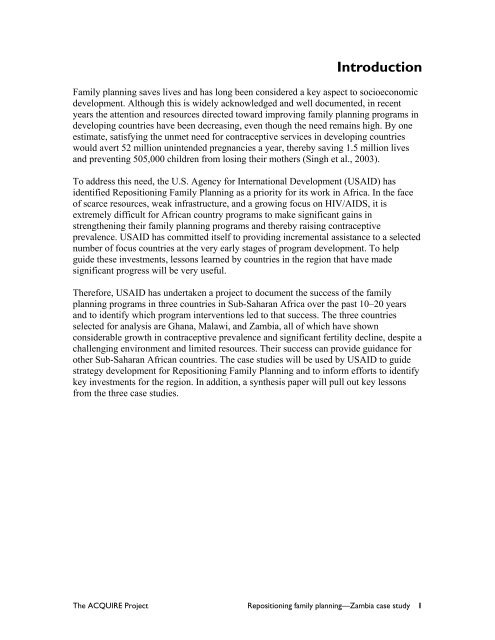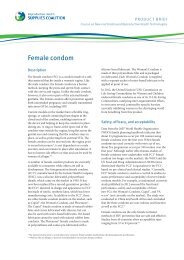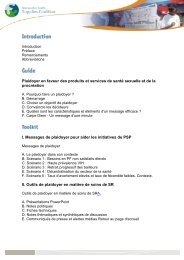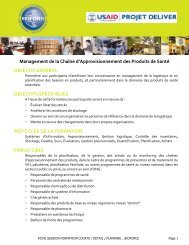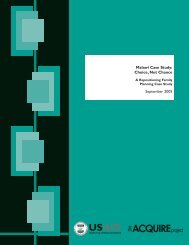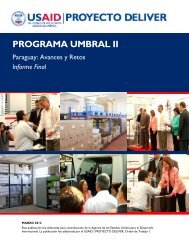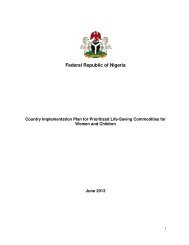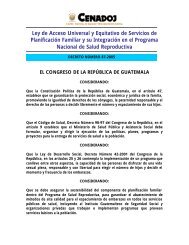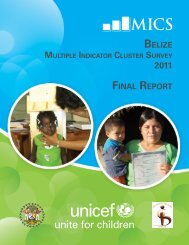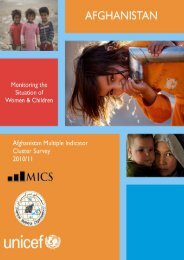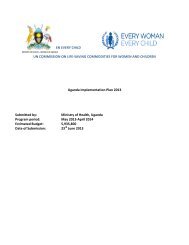Zambia Case Study: Ready for Change - Reproductive Health ...
Zambia Case Study: Ready for Change - Reproductive Health ...
Zambia Case Study: Ready for Change - Reproductive Health ...
Create successful ePaper yourself
Turn your PDF publications into a flip-book with our unique Google optimized e-Paper software.
Introduction<br />
Family planning saves lives and has long been considered a key aspect to socioeconomic<br />
development. Although this is widely acknowledged and well documented, in recent<br />
years the attention and resources directed toward improving family planning programs in<br />
developing countries have been decreasing, even though the need remains high. By one<br />
estimate, satisfying the unmet need <strong>for</strong> contraceptive services in developing countries<br />
would avert 52 million unintended pregnancies a year, thereby saving 1.5 million lives<br />
and preventing 505,000 children from losing their mothers (Singh et al., 2003).<br />
To address this need, the U.S. Agency <strong>for</strong> International Development (USAID) has<br />
identified Repositioning Family Planning as a priority <strong>for</strong> its work in Africa. In the face<br />
of scarce resources, weak infrastructure, and a growing focus on HIV/AIDS, it is<br />
extremely difficult <strong>for</strong> African country programs to make significant gains in<br />
strengthening their family planning programs and thereby raising contraceptive<br />
prevalence. USAID has committed itself to providing incremental assistance to a selected<br />
number of focus countries at the very early stages of program development. To help<br />
guide these investments, lessons learned by countries in the region that have made<br />
significant progress will be very useful.<br />
There<strong>for</strong>e, USAID has undertaken a project to document the success of the family<br />
planning programs in three countries in Sub-Saharan Africa over the past 10–20 years<br />
and to identify which program interventions led to that success. The three countries<br />
selected <strong>for</strong> analysis are Ghana, Malawi, and <strong>Zambia</strong>, all of which have shown<br />
considerable growth in contraceptive prevalence and significant fertility decline, despite a<br />
challenging environment and limited resources. Their success can provide guidance <strong>for</strong><br />
other Sub-Saharan African countries. The case studies will be used by USAID to guide<br />
strategy development <strong>for</strong> Repositioning Family Planning and to in<strong>for</strong>m ef<strong>for</strong>ts to identify<br />
key investments <strong>for</strong> the region. In addition, a synthesis paper will pull out key lessons<br />
from the three case studies.<br />
The ACQUIRE Project Repositioning family planning—<strong>Zambia</strong> case study 1


